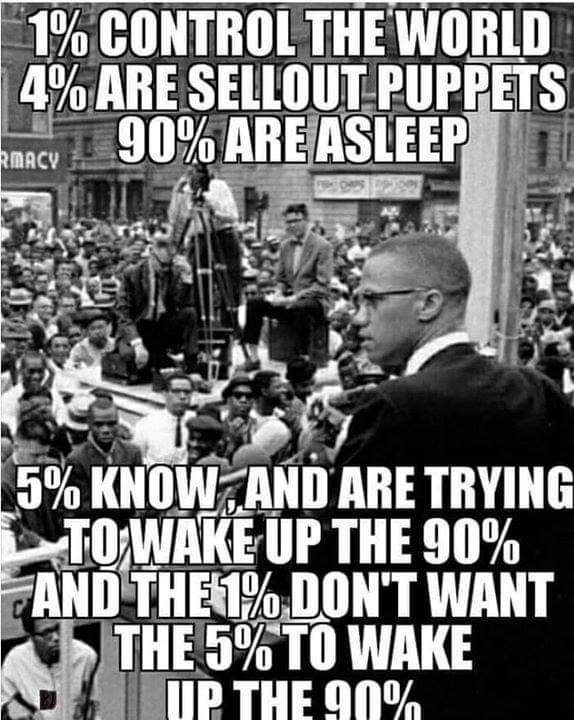
Let’s be real—life is rigged. Not in the conspiracy-theory sense where some Illuminati council meets in a dark room deciding your fate. No, it’s rigged by something far worse: mathematics, psychology, and cold, hard economics. The rich keep stacking their wealth like an overpowered Monopoly player, while the poor get stuck rolling the dice and hoping for a lucky break. This is not a glitch in the system. This is the system.
So, let’s break it down: why does money flow uphill? Why do some people print wealth like a government gone rogue while others drown in debt? And most importantly—how do you escape the trap before you become just another statistic?
- The Snowball Effect: Compounding Is the Devil’s Favorite Trick
Money is like a snowball rolling downhill—it picks up more snow as it moves.
The problem?
The rich already have massive snowballs, while the poor are trying to pack a handful of ice with their bare fingers.
Investments Compound: A rich man puts Ksh 10 million into real estate, stocks, or businesses.

It grows passively. A poor man puts Ksh 10,000 in a savings account. Inflation eats it alive.
Connections Compound: The rich network with powerful people, opening doors to deals.
The poor network with fellow broke people, sharing sob stories and splitting bills.
Knowledge Compounds: The rich read books, take risks, and learn from their mistakes.
The poor watch TV and hope their boss notices their “hard work.”
The result? The rich move up exponentially, while the poor stay stuck.
- The Psychological Trap: The Poor Think Like Employees, The Rich Think Like Owners
Rich people don’t wake up thinking, “I need to work for money.” They wake up thinking, “How can I make money work for me?”
Poor Mindset:
“If I work harder, I’ll earn more.”
“Let me save money and avoid risks.”
“The government should fix this.”
Rich Mindset:
“If I own assets, I’ll never need to ‘work.’”
“Let me invest, even if there’s risk.”
“I’ll shape the system to benefit me.”
The poor trade time for money, while the rich build machines that print cash even while they sleep.
That’s why Jeff Bezos makes more in a second than most people make in a year.

- The Economic System: Designed to Keep You Poor, Until You Cheat It
Let’s not sugarcoat it: the financial system is a meat grinder for the poor.
Inflation – Your money loses value every year. Rich people hedge against inflation with assets. The poor hold cash, which is like trying to store water in a basket.
Taxes – The rich legally avoid taxes through loopholes. The poor get slammed with PAYE, VAT, and ridiculous fees.
Debt – The rich use debt to acquire appreciating assets (land, businesses). The poor take debt to buy liabilities (loans for weddings, clothes, cars).
Education System – Trains you to be a worker, not a boss. Teaches compliance, not power.
The system is a game. If you don’t learn the rules, you’re the pawn.
- The Hypergamy Factor: Why Women Make the Divide Worse
Now, let’s add fuel to the fire—women don’t date down.
A broke man struggles to attract a high-quality woman.
A rich man has unlimited options.
Women chase security, and security means wealth.
This means poor men stay poor and lonely, while rich men build dynasties.
It’s nature, not sexism.
And if you don’t believe this, check Tinder—80% of women chase the top 10-20% of men.
If you’re broke and think love will save you, it won’t.
- How to Escape the Poverty Trap (Before It’s Too Late)
If you don’t want to be another casualty of the system, you must change how you play the game.
A. Own, Don’t Rent
Own land. Own businesses. Own platforms. If you don’t own, you’re owned.
Stop working for money—make money work for you.
B. Master Leverage
Use other people’s time (employees).
Use other people’s money (investors).
Use technology (automation).
C. Think Like a King, Not a mere Soldier
Don’t chase jobs, create them.
Don’t compete for crumbs, control the bakery.
Don’t save for retirement, build assets that make retirement irrelevant.
D. Get Ruthless About Money
Stop thinking money is evil. It’s power.
Stop wasting time on things that don’t generate wealth, health, strength or wisdom.
Stop seeking comfort—seek domination.
The Harsh Reality
The rich get richer because they understand how power works.
The poor stay poor because they follow a system designed to keep them weak.

This isn’t about luck, and it’s not about fairness. It’s about strategy.
You either take control of your fate, or you become another statistic.
Which side will you be on?
The Pareto Distribution: Why 80% of People Will Never Make It
The world is not fair, and it never has been.
If you’ve ever felt like a small group of people control almost everything—money, power, women—you’re absolutely right.
This is not a conspiracy.
It’s The Pareto Principle (also called the 80/20 Rule), but in reality, it’s even more extreme.
We live in a world of power laws, where a tiny elite owns almost everything, while the masses fight over scraps.
Let’s break it down.
- What is The Pareto Distribution?
Vilfredo Pareto, an Italian economist, discovered something strange in the 1900s:
80% of Italy’s land was owned by 20% of the population.
80% of a business’s revenue comes from 20% of its customers.
80% of a company’s work is done by 20% of its employees.
80% of women chase the top 20% of men (modern dating in a nutshell).
This is not a coincidence. It’s a fundamental law of nature.
Wealth, success, and power do not distribute evenly—they concentrate at the top.
And the more extreme the system gets, the more power accumulates in fewer hands.
Instead of 80/20, we get 90/10… then 99/1… then eventually, 99.9/0.1.
Very soon, you’ll be either rich or poor, powerful or powerless, Strong or Weak…

This is why the middle class is disappearing.
- The Snowball Effect: Why The Rich Keep Winning
The Pareto Distribution happens because of Positive Feedback Loops (a.k.a. The Snowball Effect). We have explained this at the beginning of this topic.
Once someone gets ahead, their advantage keeps growing.
A rich man invests in assets, his wealth grows, he reinvests and he gets richer.
A broke man lives paycheck to paycheck, inflation kills his savings and he remains poor.
This applies everywhere:
Fame: The most famous people get more attention, making them even more famous.
Power: The strongest nations control the rules, keeping themselves in power.
Relationships: The most desirable men get multiple high-quality women, while others get ignored.
The system rewards winners and punishes losers.
Do you now understand why becoming power is your only priority at the moment?
- The Dark Side: The Poor Are Screwed
If you’re in the bottom 80%, things get worse over time:
Low income? Inflation eats whatever little you save.
No assets? You’ll rent forever while landlords get richer.
Average dating life? Women only want the top 10-20% of men, leaving the rest frustrated.
Sad fact: Almost 99% of women will reproduce, passing their genes to the next generation.
Only 30-40% of men are able to reproduce.

And here’s the brutal truth: The game is rigged, and nobody is coming to save you.
The education system? Trains you to be a worker, not a boss.
The government? Keeps you dependent so you never challenge them.
The media? Keeps you distracted while the elites build empires.
The Pareto Principle ensures that if you do nothing, you will sink lower and lower.
- How to Escape the Pareto Trap
You must break into the top 1% or get crushed by the system. There is no middle ground.
A. Own Assets
If you don’t own land, you’ll rent forever.
If you don’t own a business, you’ll be someone’s employee forever.
If you don’t own investments, your wealth will never grow.
B. Use Leverage
The rich don’t work harder; they use money, people, and technology to multiply their power.
Instead of saving, invest in cash-flowing assets.
Instead of working harder, hire others to work for you.
C. Get Ruthless About Power
Stop thinking life is fair. It isn’t.
Stop playing by rules meant to keep you weak. Bend or Break them.
Stop thinking like an employee. Think like a king.
D. Exploit the 80%
The bottom 80% will always exist. If you don’t control them, someone else will.
They will always consume entertainment—so create content and monetize them.
They will always need jobs—so build businesses and employ them.
They will always look for leaders—so position yourself as one.
- The Harsh Reality: There is No Equality
If you don’t take control of your life, you will become part of the bottom 80%. No one is safe.
The rich don’t get richer by chance.
The poor don’t stay poor because of bad luck.
It’s all about mindset, strategy, and action.

The Matthew Effect is a concept in sociology and economics that describes how success and advantages tend to accumulate for those who already have them,
while those who lack initial advantages struggle to catch up.
It is often summarized as “the rich get richer, and the poor get poorer.”
The term comes from the Bible (Matthew 25:29):
“For to everyone who has, more shall be given, and he will have an abundance; but from the one who has not, even what he has shall be taken away.”
Examples of the Matthew Effect:
- Wealth & Power: People born into rich families have better education, connections, and opportunities, making them even wealthier over time.
The poor, on the other hand, struggle to escape poverty.
- Fame & Influence: Popular figures or businesses get more attention, funding, and followers, while equally talented but lesser-known people struggle to gain recognition.
- Education & Intelligence: Kids who do well in school get more encouragement and better opportunities, reinforcing their success, while struggling students fall further behind.
- Scientific Research: Famous scientists get more funding and credit for discoveries, while lesser-known researchers struggle to get recognition—even if their work is equally valuable.
The Matthew Effect in Power and Leadership
For a man seeking power (The Tribal Chief mindset), the Matthew Effect means:
You must secure early wins. Small successes snowball into bigger ones.
Power attracts power. Once people perceive you as strong, they will naturally follow you.
Status breeds status. The more you assert dominance, the more others will respect and obey you.
This principle explains why it’s easier to build on existing success than to start from scratch.
It also means that power is rarely given—it is seized and maintained through momentum.

